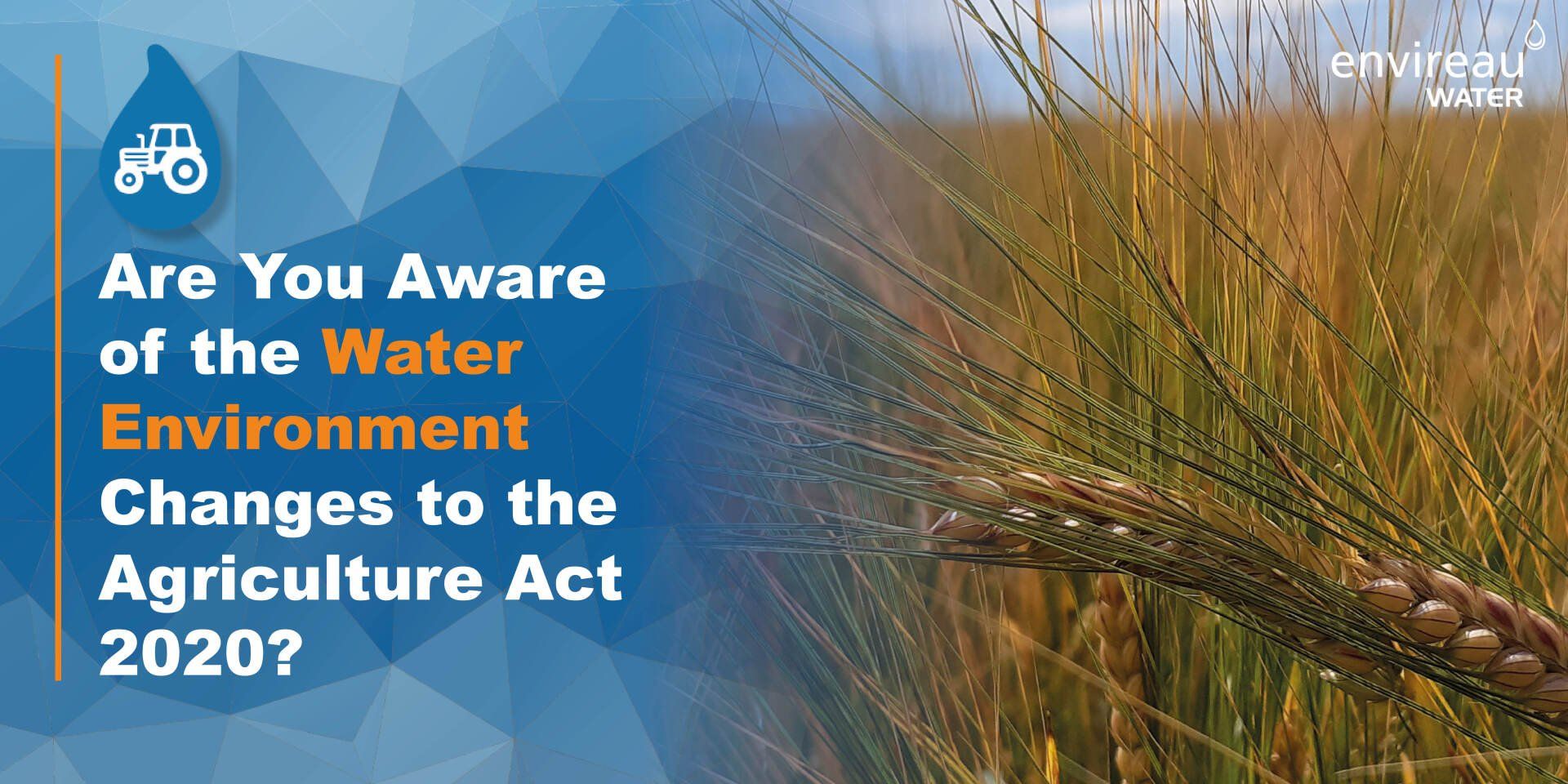The Agriculture Act: January Changes to the Water Environment
Envireau Water has reviewed the recent Natural England and Environment Agency publications describing the Act to summarise the key points that you need to know.
So, what’s the big deal?
On the 1st January 2021, a 7-year transition period away from the EU based support funding to the new UK system started. This transition period is marked by changes in funding that seek to improve the water and wider environment, reduce carbon emissions, and promote animal health and welfare.

What do the changes mean?
The Basic Payment Scheme (BPS) will be phased out over 7 years, providing recipients of the payments time to adjust and develop. The payment bands will be reduced year on year, with money saved being invested back into agriculture and the countryside.
The BPS will be replaced by the Environmental Land Management Scheme (ELMS) , launching in full in 2024. The ELMS scheme is intended to reward farmers, foresters, and land managers who ‘provide public goods’ with a positive environmental impact; such as sustainable water management and flood mitigation measures.
Starting in January 2021, a ‘Farming Investment Fund’ will provide farmers with the opportunity to invest in equipment, technology, and infrastructure to improve farm productivity whilst benefitting the environment. Crucially, this includes investment in water storage infrastructure such as storage reservoirs.
In addition, with farmers up and down the country experiencing flooding and drought related challenges, Defra announced a financial assistance scheme when there are ‘exceptional market conditions’. The scheme will support those affected for a defined period through a grant, loan or guarantee.
More on the Environmental and Land Management Scheme…
The ELMS scheme is being developed to support farmers and land managers whilst being in line with the 25-year Environmental Plan and the 2050 net zero carbon emissions target. A national pilot of ELMS will begin in 2021 with over 3000 farmers and land managers already involved in trials that will help to shape and deliver a scheme which works for all involved.
How can Envireau Water help you?
Envireau Water are familiar with implementing Nature Based Solutions which protect, sustain, and restore the natural environment. We have innovatively introduced a range of reed bed systems for water treatment ; completed river restorations ; designed Natural Flood Management systems; and developed complex modelling to optimise storage reservoirs and irrigation systems for large scale low carbon glass house developments . These are examples of how you can meet the ELMS criteria of ‘providing public goods, while having a positive environmental impact’.
What to do in the meantime…
Further details will be published throughout 2021, developing on the three components: Sustainable Farming Incentives, Local Nature Improvements and Landscape Recovery. What is critical is that as you start considering land management activities, or infrastructure projects, you consider innovative and appropriate Nature Based Solutions that can be built into your project or as compensation for the development. To discuss approaches and options get in touch with our technical lead Rebecca on RebeccaHaw@envireauwater.co.uk or 01332 871 882.







